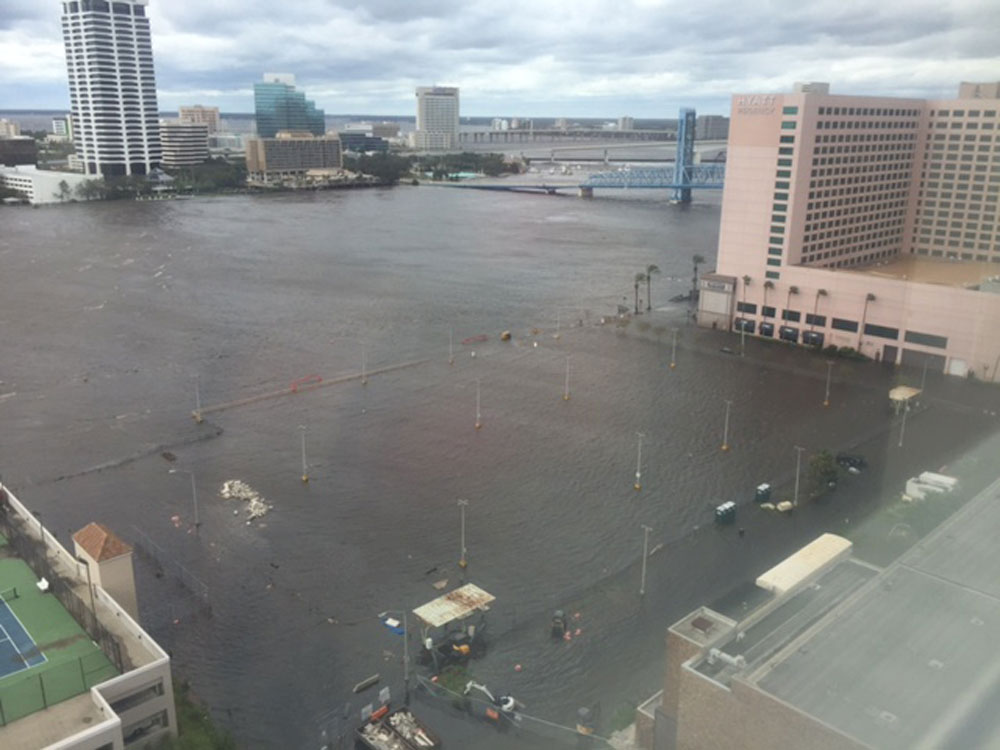
January 27, 2020; First Coast News
It may not have a very catchy name, but Jacksonville City Council’s Special Committee on Resiliency drew a big crowd of over 100 people to City Hall this past Monday as the committee met to begin its work. The committee, notes Anne Schindler of First Coast News, is tasked with helping the city of 900,000 envision its future as the dangers posed by the expected global-heating-induced sea-level rise become increasingly apparent.
Schindler reports that, “Committee Chair Matt Carlucci asked the US Army Corps of Engineers climate change expert Glenn Landers to set the stage. He said the city needs to prepare for seas that are between four and nine feet higher by the year 2100.”
Preparing for sea-level rise is expensive, but not preparing is more expensive. Landers said at the committee meeting that Corps studies show every dollar of resiliency spending now saves between $4 and $5 later.
“We’ve got to start on this. This is hugely important,” Carlucci said. “Seas are rising, and the temperature is getting hotter, which the insurance industry says is going to make hurricanes more frequent and more severe.”
Sign up for our free newsletters
Subscribe to NPQ's newsletters to have our top stories delivered directly to your inbox.
By signing up, you agree to our privacy policy and terms of use, and to receive messages from NPQ and our partners.
Florida Department of Environmental Protection coastal resiliency expert Whitney Grey told the committee that Jacksonville’s challenges are not unique. “This is a situation that is happening all over the state,” Grey said.
Grey pointed out that other Florida cities are further along in their planning than Jacksonville—places such as Orlando (even though Orlando is inland), Tampa, and St. Augustine. Still, Grey was glad to see Jacksonville beginning to mobilize: “We can’t keep the water from continuing its march.”
City Councilman Aaron Bowman, former commander at Mayport Naval Station, told the committee that even a three-foot sea-level rise has profound implications for the local base.
The committee expressed interest in hiring a chief resiliency officer—someone to coordinate planning and funding
“Today, we’re just starting with our first step,” said Carlucci. “We kind of put these ideas these concerns aside until we get into hurricane season, and that’s when everybody starts realizing, wow—we really are at risk here in Jacksonville.”—Steve Dubb













